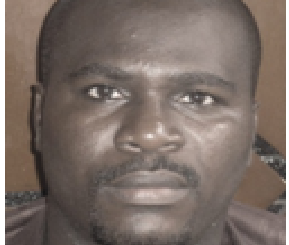
SIERRA LEONE: THE INDICATORS AND HOW THE LAST CREDIBLE INSTITUTION HAS FALLEN BECAUSE OF CORRUPTION.
“There cannot be a virtue greater than honesty so let’s just say it was not meant to be trusted”
By Ibrahim S. KOROMA ESQ
Nigerian economist and development expert, Ngozi Okonjo-Iweala wrote this in the Brookings series: Foresight Africa 2019 “That corruption and poor governance are key factors holding back Africa’s development are notions deeply embedded in the literature and thought on Africa’s socioeconomic development. What is not so common is discourse and success stories about how to systematically fight this corruption. Though this may sound discouraging, I can tell you, from my experience, that it is indeed possible to fight corruption successfully with the right knowledge, patience, and commitment to transparency.”

These got to a head when state institutions became gravely politicized and lacked independent oversight. The President of Sierra Leone has powers almost unilaterally to appoint and dismiss (Auditor-General and few excepted) without reason and then subject the citizens some, who incidentally have been exposed to operational sanity in other parts of the world, to shock. Many Sierra Leoneans have traveled, lived and worked broad. Some of them have retired, returned and or are now living in their country of birth. Technology aids those at home too. The awe and intrigue of our days is the mannerism and the leadership’s quest for absolute control of the institutions that runs government. Today, a good number of parliamentarians agree that there was only one operationally independent institution left in the country: the Audit Service Sierra Leon e (also called Audit Service).
The Constitution of Sierra Leone; section 199(1), established a Public Office to be headed by the Auditor-General to audit and report on, and therefore shall have access to all books, records, returns and other documents relating or relevant to “The public accounts of Sierra Leone and all public offices, including the Courts, the accounts of the central and local government administrations, of the Universities and public institutions of like nature, any statutory corporation, company or other body or organization established by an Act of Parliament or statutory instrument or otherwise set up partly or wholly out of Public Funds.”
For their role, Audit Service the solitary institution of the state that commands possibly the highest degree of respectability across party and other classifications within the country. Its head, Mrs. Lara Taylor-Pearce; a career auditor and public servant, has served for over a decade. Although the requirements of Parliament debating the annual audit reports has been undermined for long, citizens have come to appreciate and anticipated their discussions of the reports themselves. This new vetting method, as crude as it maybe, has great impacts on the general understanding and appreciation of the role of the Audit Service and government’s sincerity on graft and how public funds are spent or not spent. It offers a quintessential opportunity unadulterated, to ordinary citizens without trivializing the social-political implications, although the hyperbole that follows, can be attributed to a dereliction of parliament’s constitutional responsibility.
On the upside, the Audit Service has put successive governments in check when they publish their reports. This is the result of consistent determination to building that institution as an independent asset of the state enduring over a decade. To get to this level takes time. Sometimes, the government takes the reports with a pinch of salt but for the public and indeed the opposition political parties, it is perceived as a judgement on the government’s corruption control and sincerity to the voters. Corruption has become the single biggest policy challenge for the nation. The Audit Service reports encapsulates patterns of corruption identified as important factors in the series from Brookings: grand, political and administrative, which includes public resource transfer to private entities, allocation of public resources to political allies, and misuse of public funds. The trouble is, it is only Audit Service that understands corruption in this way. The others clearly do not. The first implies a lack of transparency of critical financial or other information central to economic development such as revenue and budget. The second one means the weakness or total absence of institutions, systems and processes that block leakages. The last one is the pervasive impunity; a limited political will to hold accountable and punish those found guilty of corruption.
During his time in opposition, President of Sierra Leone Julius Maada Bio and his Sierra Leone People’s Party(SLPP) used the Audit Service reports as an instrument of political attacks, name-calling and support mobilization to undercut the erstwhile administration of Ernest Bai Koroma and to defeat his party in the polls. Koroma was President between September 2007 and April 2018 and Lara Taylor- Pearce remained in office. Her reports were praised by Mr. Bio and his party, described as “probably Sierra Leone’s most effective institution… led by the Auditor-General, the dynamic Lara Taylor- Pearce” immediately following his election victory. Many commentators believe that the reports of Audit Service were the greatest assets of the then main Opposition SLPP. In 2018, when Mr. Bio took office however, it almost instantaneously became clear that, Taylor-Pearce may not continue as such under the new administration. Citizens were stunned by the audit reports of 2018 and 2019 which analysts say revealed a systematic escalation of graft in government offices. These reports are incongruous with reports of the institution responsible for leading the fight against corruption in Sierra Leone.
The Anti-Corruption Commission (ACC) lauds itself with many laurels at their back. Even though the audit reports and independent perception indicators and data continue to speak about rising corruption in high places in most sectors including the presidency, Parliament and the Police under the new administration and its impacts on society, the beautiful reporting around the conversation on perception of “control” by the state rather than on the figures with respect to actual events and consequences is alarming. One such example is, the reporting of the ACC’s “control of corruption” that continues to grow steadily including up to 83% in the Millennium Challenge Corporation(MCC) indicator report of 2021, continue to mold the imagery that misrepresent the national data parity. The ACC itself is pushing a narrative of positive victory which is self-motivating but also clearly misleading because it is not there yet. For instances it reported growth figures on perception survey in the MCC from 71% in 2018, 79% in 2019, 81% in 2020 to its present. Compared to other countries in the region, the ACC is doing well there and can even claim an “Outstanding” accolade. But this is only a perception on control which disengages critical contrasting reporting.
The ACC reported a movement on the Transparency International Ranking of 2020 without indicating its overall score of 33% at 177 alongside Egypt, Eswatini, Zambia, Nepal and Ukraine, some of the most corrupt places on earth. It is important to highlight that while Transparency International also depended on perceptions, its 2020 report was focused on how corruption undermined states’ capacity to respond to dual health and economic crises resulting from Covid-19. Its raison d’e-tre is examining how corruption diverts funds from essential services like healthcare leaving a country vulnerable and unprepared to deal with heath crisis, lack of transparency in the allocation of resources, breaches of human rights and democratic norms in the management of the pandemic. ACC also reported on the 2019 Global Corruption Barometer ranking of 3rth in “Government’s Effectiveness in the Fight Against Corruption” but refrained from stating that the same report highlights that 43% of Sierra Leoneans believed that corruption had increased in that period and that 52% of public service users paid a bribe during that time. What perhaps is shocking remains unearthed because the same report revealed that more people have paid bribes to public clinics/health centres i.e. 50% (double 2015 figures) and public schools, 33% (against 20% in 2015) while corruption in government offices remained equal to 2015 figures at 33%. This is true although the number of persons who don’t know or refused to respond to questions also decreased from 15% to 4%. All these are above the global average bribery figure of 25%.
Further, the ACC referenced the Afro Barometer Report 2020 showing how it has minimized corruption by 30 points from its 2015 margins to 40%. The same report however shows that bribery in the country remains at the same level since 2018(47%/46%) for schools, health clinics, identity documents and police in addition to increased and worse levels for poverty, acute hunger, unemployment, inequality, clean water and electricity. The Afro Barometer, trolled the government’s boastfulness in partnership with or alongside local institutions namely the Institute for Governance Reform and Centre for Accountability and the Rule of Law and identified the presidency, Parliament and Police as the most corrupt in the country. This administration does not receive criticism and unpatronizing analysis lightly.
The executive fiercely dissected the reports and contested them. Parliament did not reprobate; it issued subpoenas to heads of the local organizations that participated in compiling the data and reportedly issued a warning. The Audit Service reports have reportedly also been questioned and its head matched with challenges of competence, partiality and political gamesmanship by their former admirers.
The actual reporting of missing Leone based on facts and figures is the data produced by the Audit Service for which it has maintained possibly the highest respect among all state institutions. But at times during the present administration, it had clashes with the ACC, the Ministry of Finance and sometimes received less support from Parliament. Lara Taylor-Pearce and senior members of her staff were occasionally reported to be under threats to their safety because of the job they do. Other reports indicate that attempts were made earlier to remove her from her post.
On November 12th this year, the British Broadcasting Corporation(BBC) reported that Mrs. Taylor-Pearce confirmed that she received a letter from the President’s office suspending her and her deputy indefinitely without a stated reason. This of course attracted sympathy and revulsion from members of the public asking questions linked to the anticipated 2020 audit report which was due in a matter of days. Although supporters of the President argue on precedent set by the courts which somehow explains the latitude of his powers, activists have referred to the Constitution, ss. 119(9), 137(4) & (5) which sets the conditions for the removal of a judge that applies to the Auditor-General, and the protection under the Audit Service Act 2014 ss. 15 and 35(1) limiting the President’s powers to suspend and or dismiss the occupant. The Institute of Chartered Accountants (ICASL) which regulates accountants and auditors, in letter to the Attorney- General dated 16th November, assures that any substantive replacement of the holder by members under these circumstances would be met with disciplinary action by the body and their international federation, IFAC.
The 2020 audit report more than any other, was expected to look into massive amounts in donations received by the government during the fight against Covid-19. An imbalance review of the first three months of Covid money expenditure had already shocked the nation in the 2019 report before the Attorney-General’s office slammed a moratorium on the Audit Service not to look into the application of Covid funds while the pandemic rages on. As well as the report on the infamous “Timbergate” revelation that also enraged the Ministry of Finance, Taylor-Pearce got her fingers burnt while poking into unchartered territory but refused to accept wrongdoing or over-reporting the missing billions while the AC galloped towards foreign acknowledgements. The Africanist Press has now reported that Mrs. Taylor-Pearce’s removal is connected to her job; for the audacity to investigate and attempt to report misuse of public funds and or falsification of receipts involving the First Lady and the President who seeks to stop her and her deputy from publishing a report that implicates his family, him or his office.
The closest the ACC has come to admitting weakness is with reference to the 2020 Afro Barometer report. Does 40% corruption mean zero corruption? Is the government’s effectiveness in fighting corruption now measured by the MCC perception surveys that mostly cover efforts of intolerance for unaccountability for every crime and misdemeanor of the past administration?
The perception around the willingness of government pursuing members of the present administration and the role of the ACC in preventing, eradicating and suppressing present-day corruption is the missing data probably because it is too low to report and the all hail audit reports have suddenly become paper talk tosh for the administration and the ACC to review and take concrete action on. If ACC should claim control of corruption based on the MCC figures only, the country would probably not be struggling to respond to nearby emergencies and would at least reduce poverty although admittedly, perhaps, the only people who have prospered in the country during the period under review are people who are exposed to political power.
Data show that the majority are grappling with hardship due to a failed school system, healthcare, justice or other emergency responses. Transparency International concluded that they found in this increasingly uncertain world that, fighting corruption is key for better response especially in a country where emergencies abound. Government can rely on so many strategies to prevent corruption in the face of crisis but they have to start from empowering and protecting Audit Service not to destroy it by politicizing it.
Keeping corruption under control is much more difficult where robust anti- corruption mechanisms are not already in place in which case corruption is likely to cripple the effectiveness of emergency response.
*Email: ibrahimsko@yahoo.com 11/16/2021.
Image below of Ibrahim Sorie Koroma ESQ



